The young girl runs down the field towards the goal, the ball in front of her. She has a wide open shot. Her heart pumps in her chest, her messy hair is in a low ponytail, and a wide smile lights up her face as she rears her leg back to score–and misses! The missed goal does not dim the seven-year-old’s grin. She runs back down the field without any self-degrading thoughts, pressures about her future, or fear of her parent’s disappointment. The missed goal does not have any consequences… yet.
When we were young, messing up and “missing goals” was an essential part of growing and learning within our sports. Now, many clubs and high school sports have altered their values, striving for perfection. Instead of coaches developing sportsmanship, athletic skills and personal growth, they are now prioritizing winning over the enjoyment of the game.
Lucy Fredrickson, a Junior at San Domenico, quit her club soccer team at AC Marin because her coach prioritized winning over her team’s comradery and well-being. Fredrickson’s coach created an atmosphere of extreme competition, leading to stressed-out athletes. The team was more focused on appeasing their coach and beating their teammates than improving their performance, working as a team and enjoying the game.
Lucy’s coach “created a very negative and stressful environment for something that’s supposed to be fun and enjoyable as an extracurricular activity,” Fredrickson said.
Fredrickson’s coach would rank athletes on her team either top 18 or bottom 10 with no constructive criticism on how someone could raise their rank, thus- creating a toxic competitive environment with every athlete striving for the top spots. This competition divided her teammates, making a less functional team. Although some competition is healthy and can be motivating, too much can damage an athlete’s mental health and even their physical performance. According to Psychiatric Times, in a study of elite Canadian swimmers, 68% had major depressive episodes and 34% met diagnostic criteria.
“[I was] nervous and anxious on the car ride there and defeated and crying on the car ride home,” Fredrickson said. This level of intense stress is not conducive to creating a functional team or individual players. If her team is afraid of making mistakes and trying new things, they will never grow as players on the field or people in their everyday lives.
Unfortunately, Fredrickson’s coach is not the only coach with twisted priorities. Her hyper-competitive coaching style is becoming increasingly common, leading to a decrease in sports participation across the U.S. According to research from the Sports & Fitness Industry Association, only 38% out of kids aged 6 to 12 played team sports consistently in 2018. This is 45% less than in 2008.
Fortunately, not everywhere has adopted this competitive attitude toward sports that burn out children at early ages. The book “Norwich” by Karen Crouse details a small town in Norwich, Vermont that explores how a nurturing environment is essential to developing young athletes. The rural town, with only around 1,440 single-family homes and 3,000 residences, has secured three Olympic medals and has produced 11 Olympians. To put into perspective Norwich’s impressive feat, Spain has a population of 46 million people but have only gained two Olympic medals in winter sports since 1936. How did this small town produce so many successful athletes?
Norwich’s success is directly linked to the way they help nurture and develop their athletes’ skills and focuses on the process of their learning, not the result of winning. By keeping the joy in sports throughout the kids’ lives, they are less likely to burn out and become anxious, allowing their athletic performance to shine. The town promotes growth in its athletes by not cutting kids from teams, encouraging multi-sport participation, and cheering on their opponents.
Towns like Norwich are an exception in the United States, but if other schools and clubs start adopting a growth mindset and focus on the athlete’s process, not only the result, many towns can induce a healthy environment as well. Furthermore, Norwich parents utilize a hands-off approach to ensure their kids are doing the sport they enjoy, not what sport their parents want them to do. Norwich parents realize that if they force their children to participate in a certain sport their children will never truly understand their full potential because their motivation is not their own. In most places around the world, parents force their children to play the sports they personally enjoy or wish they could play themselves. Parental pressure and involvement are a large factor in why sports become less fun as kids get older.
Another cause of concern is kids becoming single-sport athletes. This concept leaves athletes more susceptible to injury and burnout. According to the Washington Post, a study showed that females who specialized in soccer, volleyball, or basketball were at a 50% higher chance of severe knee pain. Another study in 2015, of 1,190 athletes ages 7 to 18 proves sport-specialized training to be an independent risk factor for injury. Focusing on a single sport from a young age is also linked to early burnout. So why do so many children specialize in one sport?
Sports specialization is because of many factors. Parental influence, college pressure, and performance anxiety are a few reasons. In fact, some students only choose the sport they are best at, not the sports they enjoy. By being a well rounded athlete, you can strengthen many aspects of your physical body as well as your mind. Playing other sports, as well as the one you want to specialize in, will improve your performance in all sports.
Furthermore, the pressure to get recruited to college largely contributes to increasing stress levels. For an athlete striving to be recruited and earn scholarships, their stress levels are amplified. Every game, race, and competition is another way to prove why you should be chosen. Every shot, swim, and sprint is measured and analyzed. They have to be on their A-game at every opportunity. This severe pressure can be exhausting and draining, but athletes will push through the pain to achieve their goals.
To help monitor the intense drive to win, coaches in all age groups, divisions, and sports need to remember the meaning behind sports–comradery, sportsmanship, hard work, friendship, and furthering one’s athletic skills. They need to reflect on how it felt to be a seven-year-old child who played purely for their love of the game–not to gain a trophy, medal, or title.








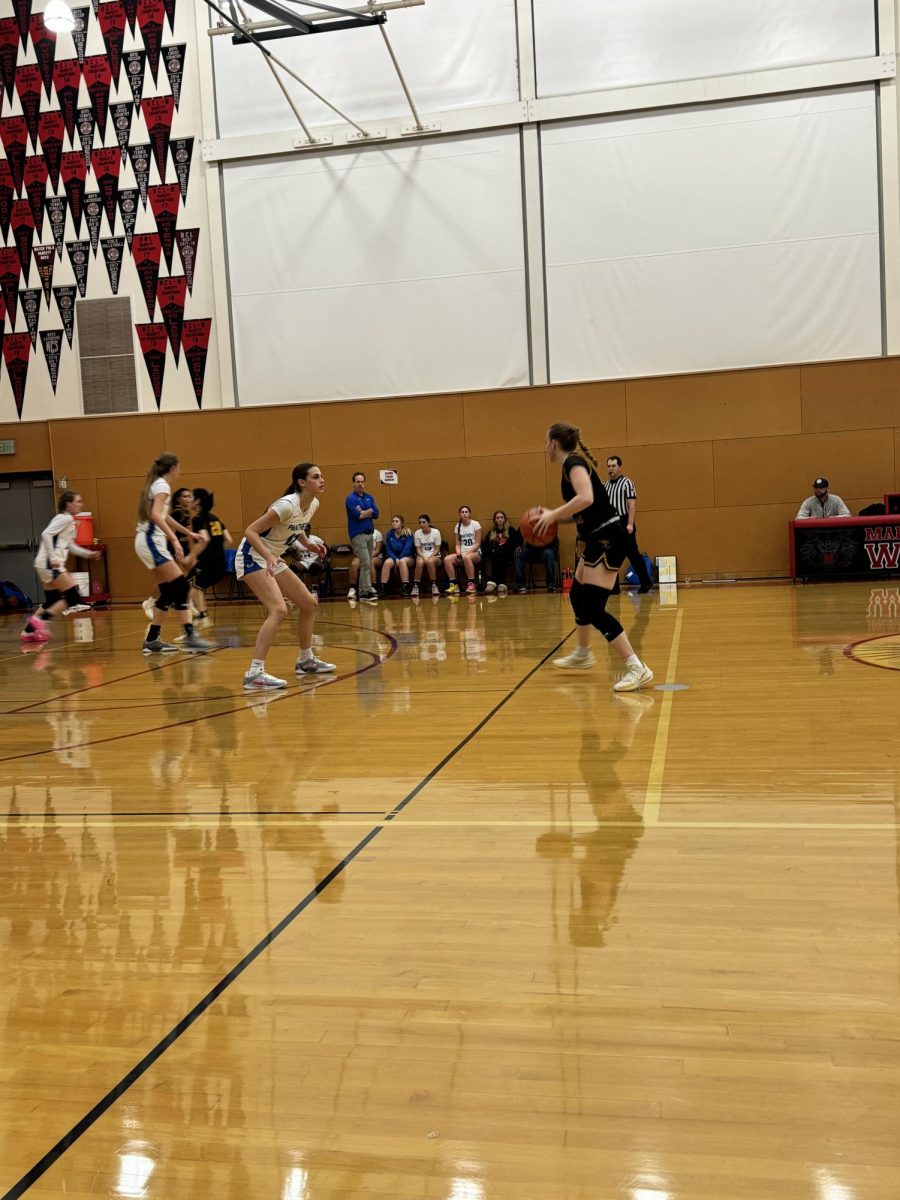
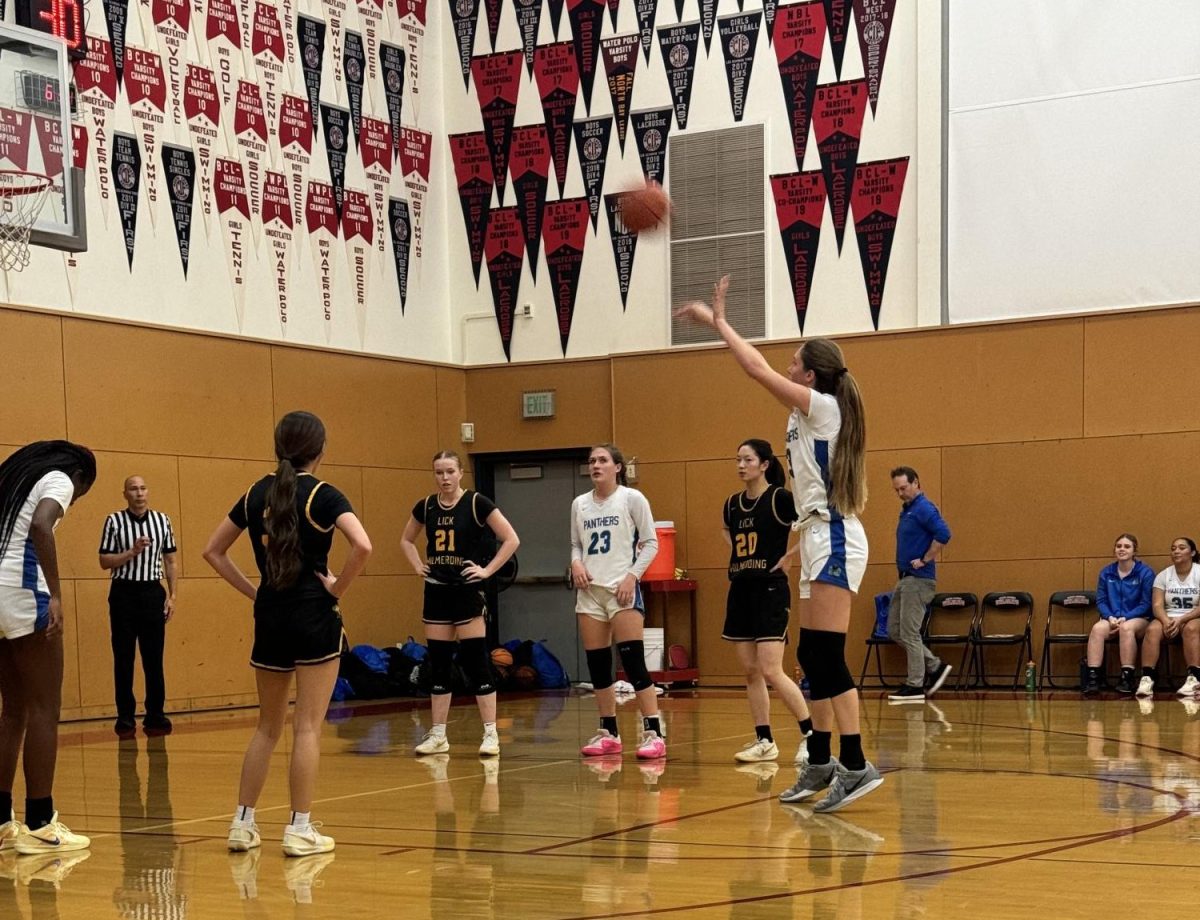





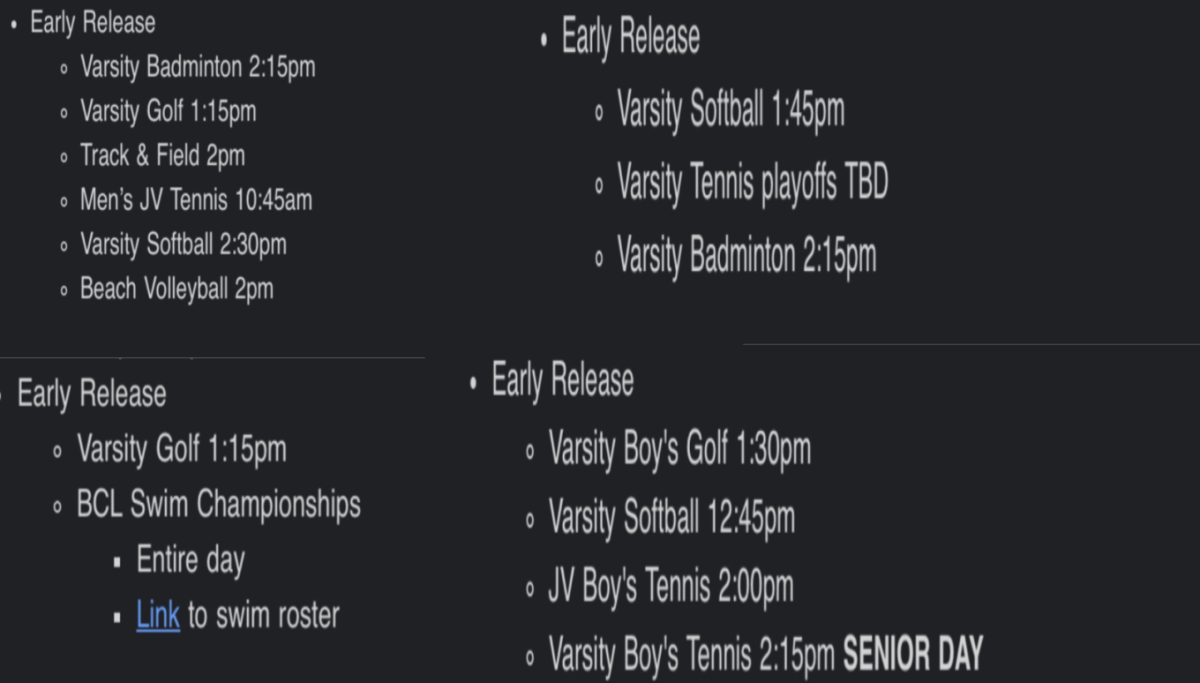





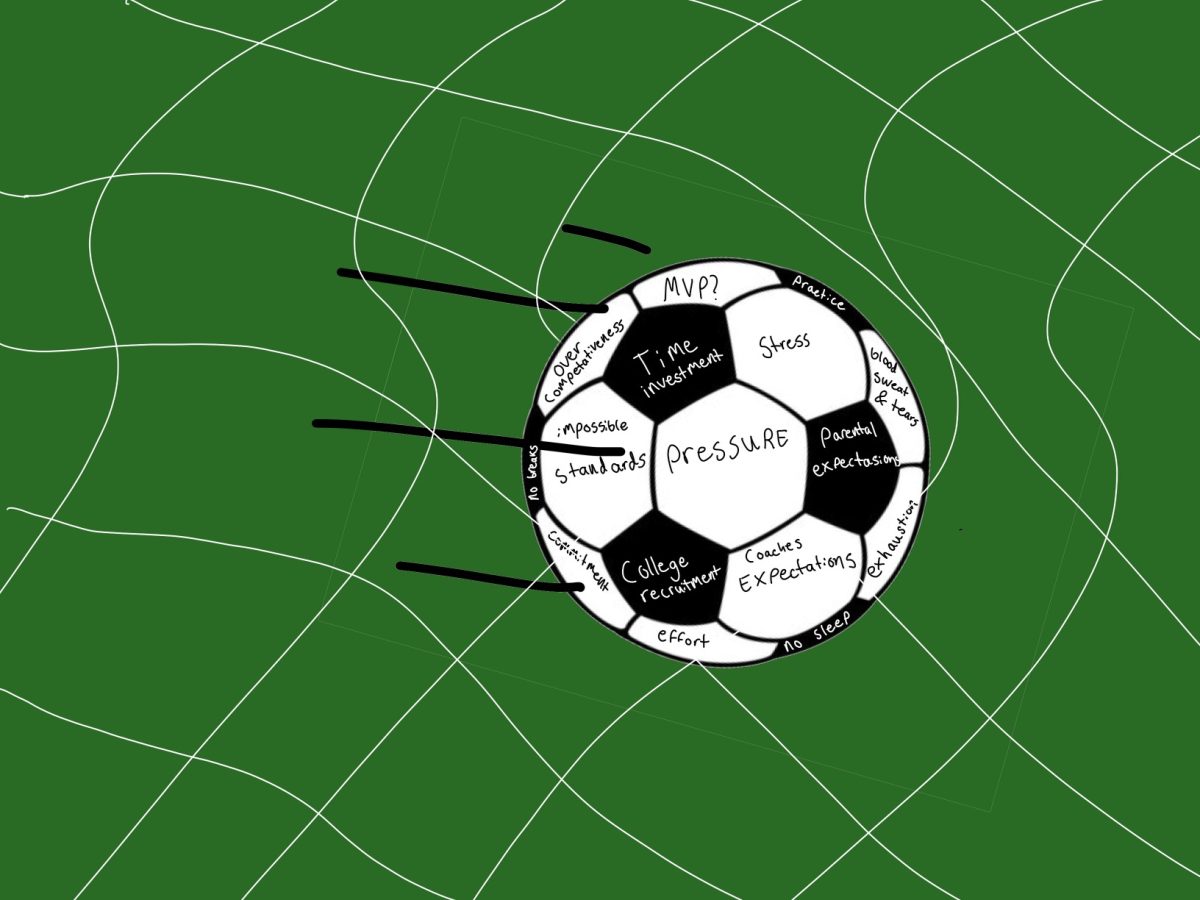
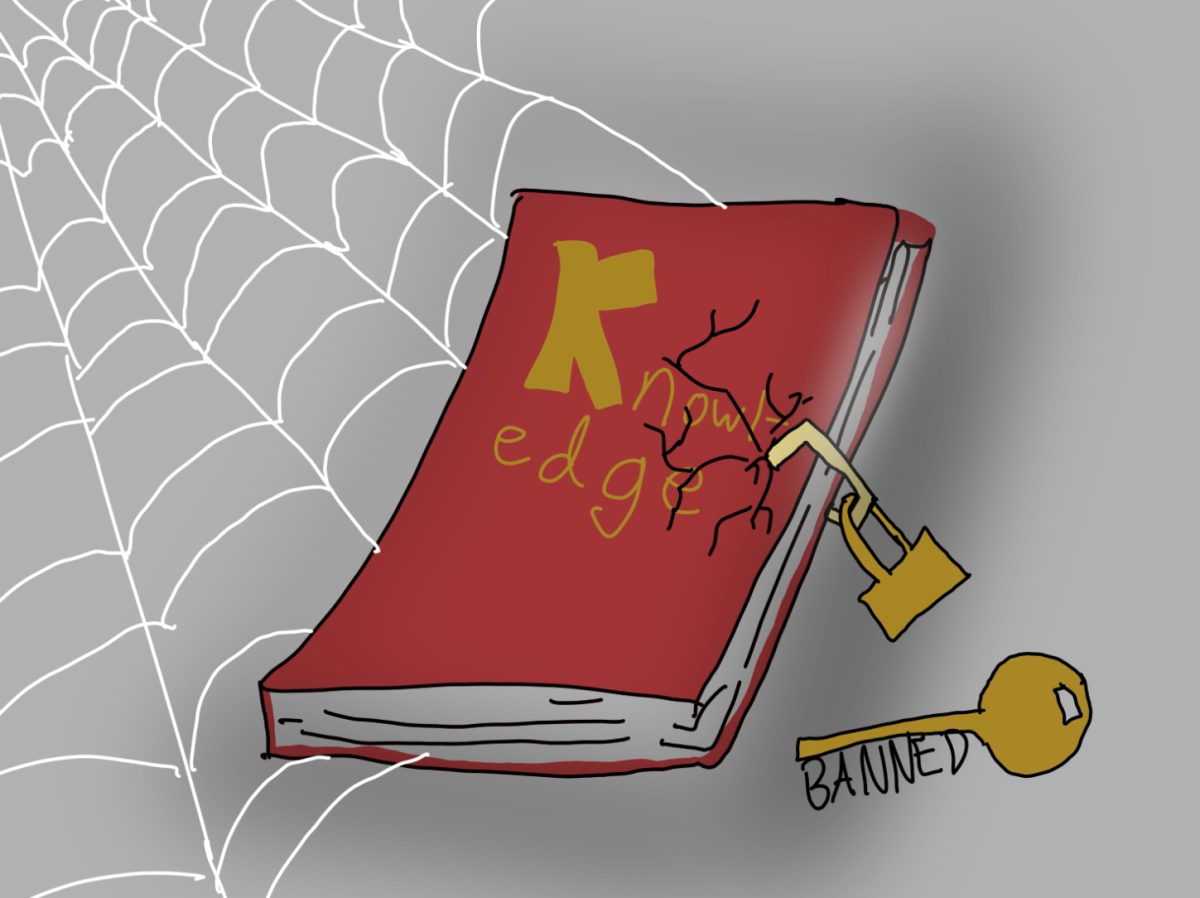


Connie Truitt • Nov 17, 2023 at 3:22 pm
Kylie, your article is really interesting and very well written. There is so much information for students and parents. I sure am proud of you.
Mimi
Connie Truitt • Nov 17, 2023 at 3:14 pm
Hi Kylie,
This article is very interesting and well written too. Hopefully some families will review this and consider your ideas for guiding healthy athletes.
Proud of you,
Mimi